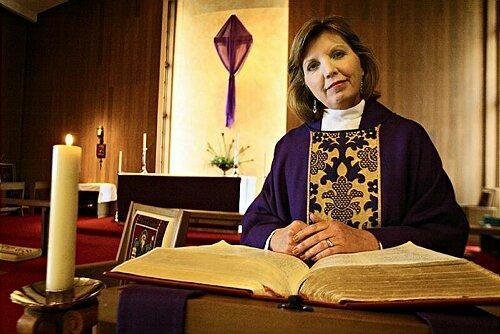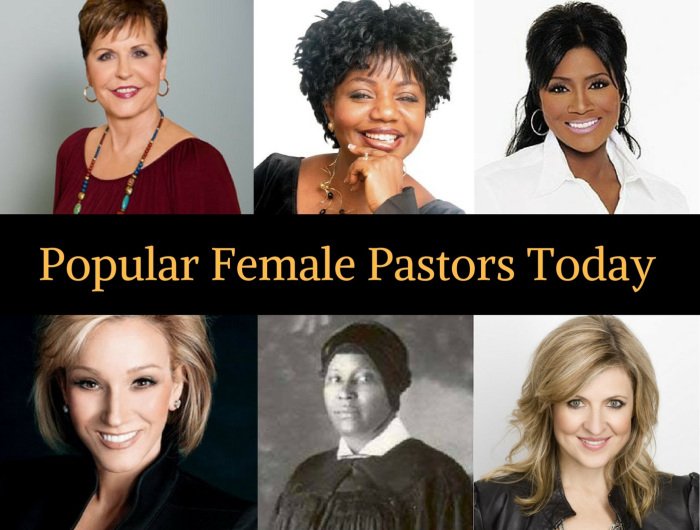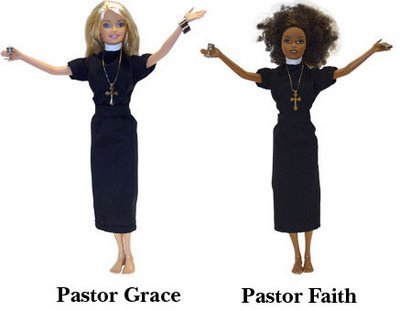There is maybe no more disputable issue in the church today than the issue of women filling in as pastors/ministers. Subsequently, it is imperative to not see this issue as men versus women. There are women who trust women ought not serve as pastors and that the Bible spots confinements on the service of women, and there are men who trust women can serve as evangelists and that there are no limitations on women in service. This isn't an issue of bullheadedness or separation. It is an issue of scriptural elucidation.
The Word of God broadcasts, "A lady ought to learn in quietness and full accommodation. I don't allow a lady to instruct or to have expert over a man; she should be quiet" (1 Timothy 2:11– 12). In the church, God doles out various parts to people. This is a consequence of the way humankind was made and the manner by which sin entered the world (1 Timothy 2:13– 14). God, through the witness Paul, limits women from serving in parts of instructing as well as having profound expert over men. This blocks women from filling in as pastors over men, which certainly incorporates lecturing them, showing them freely, and practicing profound specialist over them.
There are numerous protests to this perspective of women in pastoral service. A typical one is that Paul limits women from showing in light of the fact that in the main century, women were normally uneducated. In any case, 1 Timothy 2:11– 14 no place notices instructive status. On the off chance that training were a capability for service, at that point the lion's share of Jesus' pupils would not have been qualified.Ephesus was known for its sanctuary to Artemis, and women were the experts in that branch of agnosticism—subsequently, the hypothesis goes, Paul was just responding against the female-drove traditions of the Ephesian heathens, and the church should have been unique. Notwithstanding, the book of 1 Timothy no place notices Artemis, nor does Paul say the standard routine with regards to Artemis admirers as a purpose behind the limitations in 1 Timothy 2:11– 12.
A third complaint is that Paul is just alluding to married couples, not people all in all. The Greek words for "lady" and "man" in 1 Timothy 2 could allude to married couples; in any case, the fundamental significance of the words is more extensive than that. Further, a similar Greek words are utilized as a part of verses 8– 10. Are just spouses to lift up heavenly delivers petition without outrage and debating (verse 8)? Are just spouses to dress unassumingly, have great deeds, and love God (verses 9– 10)? Obviously not. Verses 8– 10 plainly allude to all people, not simply married couples. There is nothing in the setting that would show a narrowing to married couples in verses 11– 14.
Beyond any doubt these women were picked by God for unique administration to Him and that they remain as models of confidence, bravery, and, indeed, authority. In any case, the expert of women in the Old Testament isn't significant to the issue of pastors in the church. The New Testament Epistles show another worldview for God's kin—the church, the assemblage of Christ—and that worldview includes a specialist structure extraordinary to the church, not for the country of Israel or some other Old Testament substance.
Comparative contentions are made utilizing Priscilla and Phoebe in the New Testament. In Acts 18, Priscilla and Aquila are displayed as dedicated pastors for Christ. Priscilla's name is said in the first place, maybe showing that she was more noticeable in service than her better half. Did Priscilla and her better half instruct the good news of Jesus Christ to Apollos? Truly, in their home they "disclosed to him the method for God all the more enough" (Acts 18:26). Does the Bible ever say that Priscilla pastored a church or instructed openly or turned into the profound pioneer of a gathering of holy people? No. To the extent we know, Priscilla was not associated with service movement in inconsistency to 1 Timothy 2:11– 14.
In Romans 16:1, Phoebe is known as an "elder" (or "worker") in the church and is profoundly complimented by Paul. In any case, likewise with Priscilla, there is nothing in Scripture to show that Phoebe was a pastor or an instructor of men in the church. "Ready to educate" is given as a capability for seniors, however not for ministers (1 Timothy 3:1– 13; Titus 1:6– 9).
The structure of 1 Timothy 2:11– 14 makes the motivation behind why women can't be pastors splendidly clear. Verse 13 starts with "for," giving the "cause" of Paul's announcement in verses 11– 12. For what reason should women not instruct or have expert over men? Since "Adam was made to begin with, at that point Eve. Furthermore, Adam was not the one betrayed; it was the lady who was hoodwinked" (verses 13– 14). God made Adam first and after that made Eve to be an "aide" for Adam. The request of creation has all inclusive application in the family (Ephesians 5:22– 33) and in the church.
The way that Eve was swindled is likewise given in 1 Timothy 2:14 as an explanation behind women not filling in as pastors or having otherworldly specialist over men. This does not imply that women are naïve or that they are on the whole more effortlessly betrayed than men. In the event that all women are all the more effortlessly tricked, for what reason would they be permitted to show youngsters (who are effectively bamboozled) and other women (who are as far as anyone knows all the more effortlessly cheated)? The content just says that women are not to show men or have profound specialist over men since Eve was beguiled. God has given men the essential showing specialist in the church.
Numerous women exceed expectations in endowments of accommodation, benevolence, educating, evangelism, and helping/serving. A great part of the service of the neighborhood church relies upon women. Women in the church are not confined from open supplicating or forecasting (1 Corinthians 11:5), just from having otherworldly showing expert over men. The Bible no place limits women from practicing the blessings of the Holy Spirit (1 Corinthians 12). Women, the same amount of as men, are called to clergyman to others, to exhibit the product of the Spirit (Galatians 5:22– 23), and to announce the gospel to the lost (Matthew 28:18– 20; Acts 1:8; 1 Peter 3:15).
God has appointed that exclusive men are to serve in places of profound showing specialist in the church. This isn't on the grounds that men are essentially better instructors or in light of the fact that women are second rate or less insightful (which isn't the situation). It is just the way God planned the church to work. Men are to set the case in otherworldly initiative—in their lives and through their words. Women are to play a less definitive part. Women are urged to instruct other women (Titus 2:3– 5). The Bible additionally does not confine women from instructing youngsters. The main movement women are confined from is instructing or having profound specialist over men. This blocks women from filling in as pastors to men. This does not make women less critical, using any and all means, yet rather gives them a service concentrate more in concurrence with God's arrangement and His gifting of them.



✅ @mzintegrity, I gave you an upvote on your post!
If you are interested in claiming free Byteballs ($10+), just for having a Steem account, please visit this post for instructions: https://steemit.com/steem/@berniesanders/claim-your-free-byteballs-today-usd10-in-free-coins-just-for-having-a-steem-account